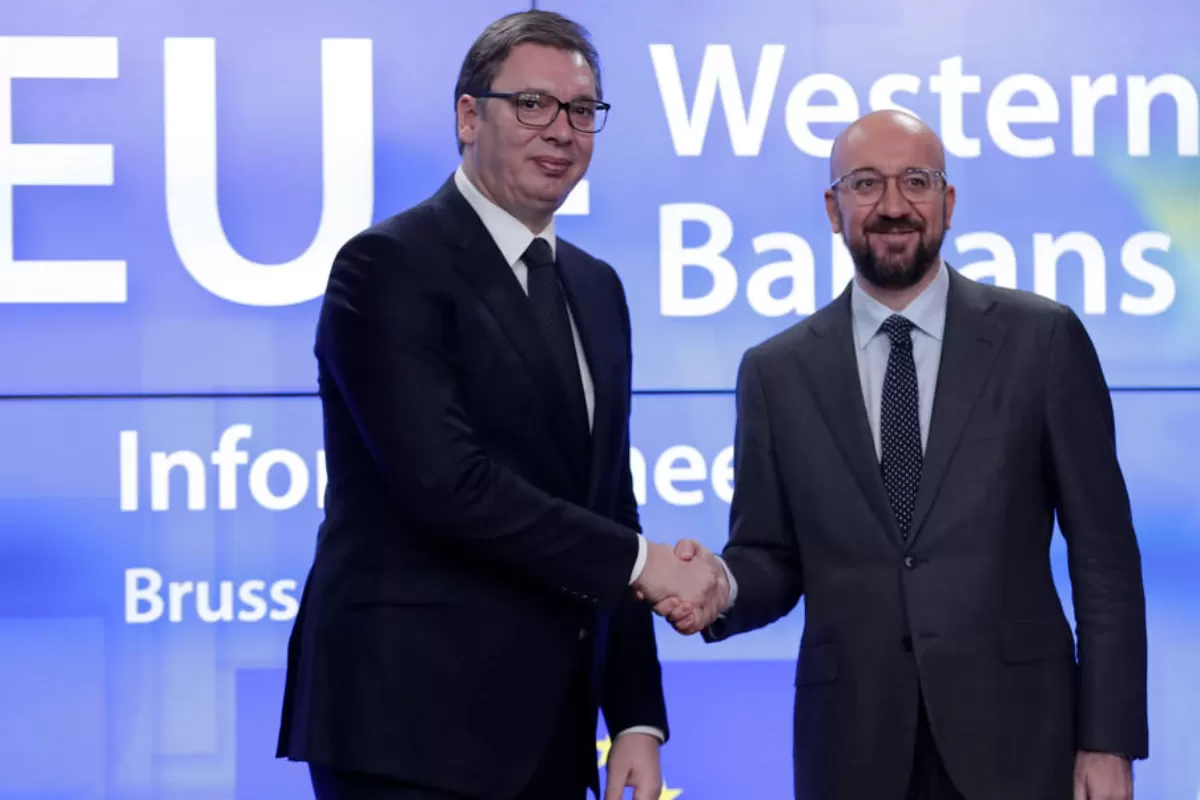
Serbian foreign policy analyst with focus on relations between Russia, Western Balkans and West. He writes for daily and weekly newspapers in Serbia. His master thesis on how pro-Russian narrative is created in Serbian media attracted a lot of attention both domestically and internationally.

Serbia has been, for years, Russia’s closest ally in the Balkans. For Moscow, the relationship is a means to project an image of power and international relevance. Belgrade, on the other hand, plays the pro-Russian card to show that it has an alternative to a West that bruised its ego during the Kosovo war, but also for some pragmatic reasons, such as Russia’s support in the UN Security Council and its role as an energy provider. Belgrade’s real interests lie, however, with the EU, and the war in Ukraine may bring about a change – albeit a slow one – in its relationship with Russia.

For more than a month, Serbia has been the target of mass bomb threats. Pro-government tabloids and some high-ranking officials claim that the campaign has behind it the West and is connected to Belgrade’s reluctance to impose sanctions on Russia, while offering no proof for the allegations. However, Russia, or Serbia’s own intelligence services may as well be interested to launch such a campaign.

Vucic’s Serbian Progressive Party (SNS) got enough votes to easily form a government, with the Socialist Party of Serbia kept as a junior partner. However, President Vucic suggested that SNS may get a new coalition partner instead of the Socialists so, at the moment, the biggest uncertainty is who will form the government in Belgrade.

Russia has been trying for years to keep a foothold in the Western Balkans, especially through its connections with Serbia and Serb groups in the region. The war in Ukraine may now push Moscow’s allies closely in the Western camp.

Russia’s invasion of Ukraine has mostly been condemned in Europe and beyond. However, there are a handful of exception, and Moscow’s main ally in the Balkans, Serbia, is one of them. Officially Belgrade spoke in favor of Ukraine’s integrity, but sanctions or even a harsh condemnation of Moscow are out of the question. Moreover, the media – which is mostly under some sort of government control or influence – is unabashedly showing its support for Putin.

Countries in the Western Balkans have long expressed their desire to join the EU, but their inability to get through with the reforms required by Brussels, as well as the latter's hesitations, continue to prolong the pre-accession process. The answer to the stalemate could be a regional mini-Schengen.